
British Team Crowned “Litter Picking Champs” at SpoGomi World Cup
Sports Environment- English
- 日本語
- 简体字
- 繁體字
- Français
- Español
- العربية
- Русский
SpoGomi is a competitive sport where teams win points by picking up trash within a given time limit. The first global championship, the SpoGomi World Cup, took place in Tokyo on November 22 and pitted teams from 21 nations.
Each team of three members competed in two 45-minute rounds held in the morning and afternoon in Shibuya. The teams together picked up a whopping 550 kilograms of litter in an area stretching from around Shibuya Station to Omotesandō. The mixed trio from Britain took the crown by collecting 83.7 kilograms of trash. Japan claimed second, with the team from Niigata Prefecture who had dominated the highly competitively Japanese final netting 55.5 kilograms.
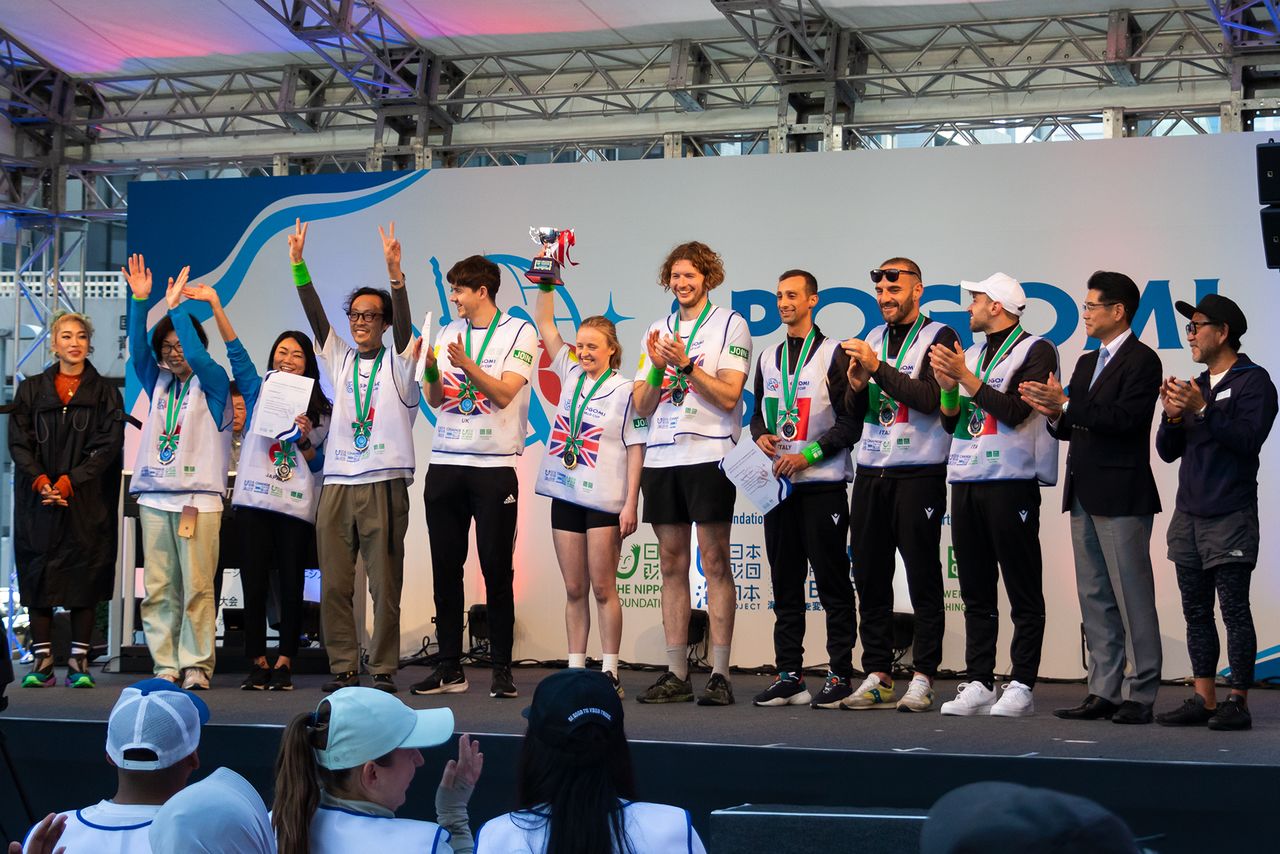
Britain earned 9,046 points to win the first-ever SpoGomi World Cup crown.
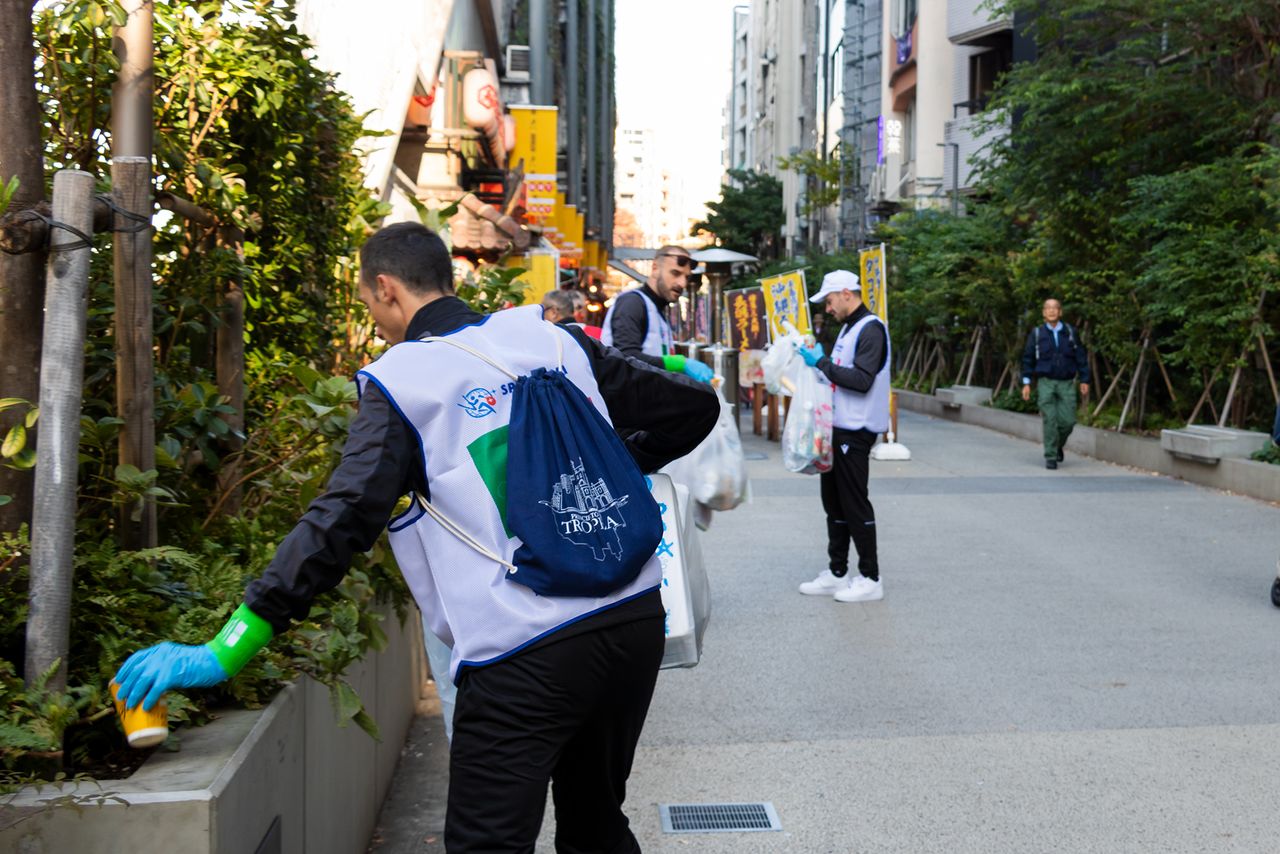
Each team developed unique strategies, like focusing on entertainment areas or side streets. This photo shows the Italian team searching for litter along dining-heavy district Shibuya Yokochō.

Some teams developed a strategy of focusing on high-point items like cigarette butts.

The British Team crossing the finish line at United Nations University with its load of litter.
SpoGomi, which describes itself as “the most earth-friendly sport,” started from an idea offered by Mamitsuka Ken’ichi, director of the event’s organizer Social Sports Initiative. SpoGomi’s goal is to raise awareness of environmental issues through the enjoyment of picking up litter as a competition. The February 2023 announcement of the first World Cup aimed to spread the sport globally. In Japan, a total of 1,221 teams participated in regional qualifying rounds and final rounds in all 47 prefectures. These were joined by 543 teams competing in qualifying rounds in 20 countries. Together, they collected a total of approximately 8.4 tons of trash.
In his speech at the opening ceremony, Sasakawa Yōhei, director of the Nippon Foundation, which supported the SpoGomi World Cup, emphasized the far-reaching benefits of removing trash from streets, noting that about 80% of marine garbage begins on land. He stressed the importance of picking up litter before it enters the sea, where it is difficult to collect.
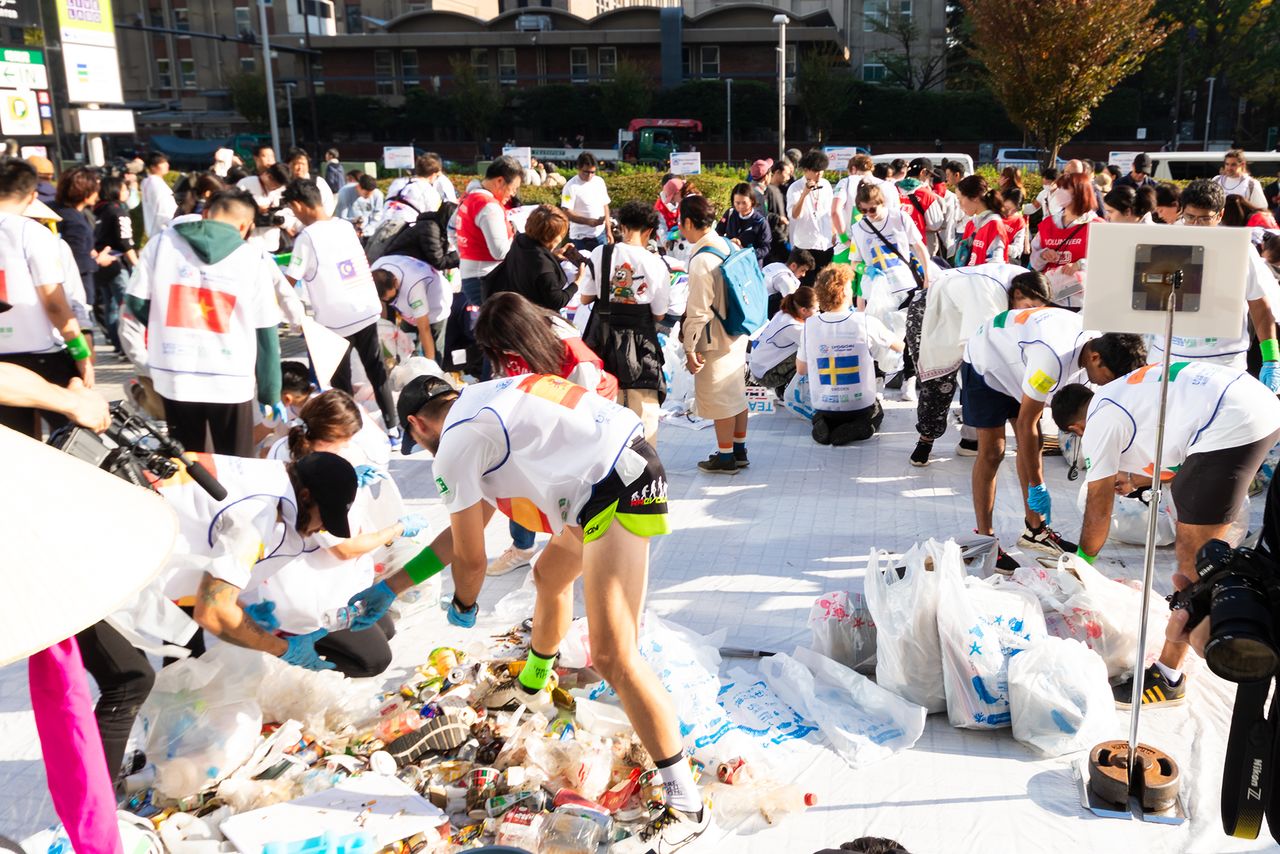
Collected garbage was only awarded points after it was separated, which posed challenges for some teams from countries where regulations for disposing of trash are not as strict as in Japan.
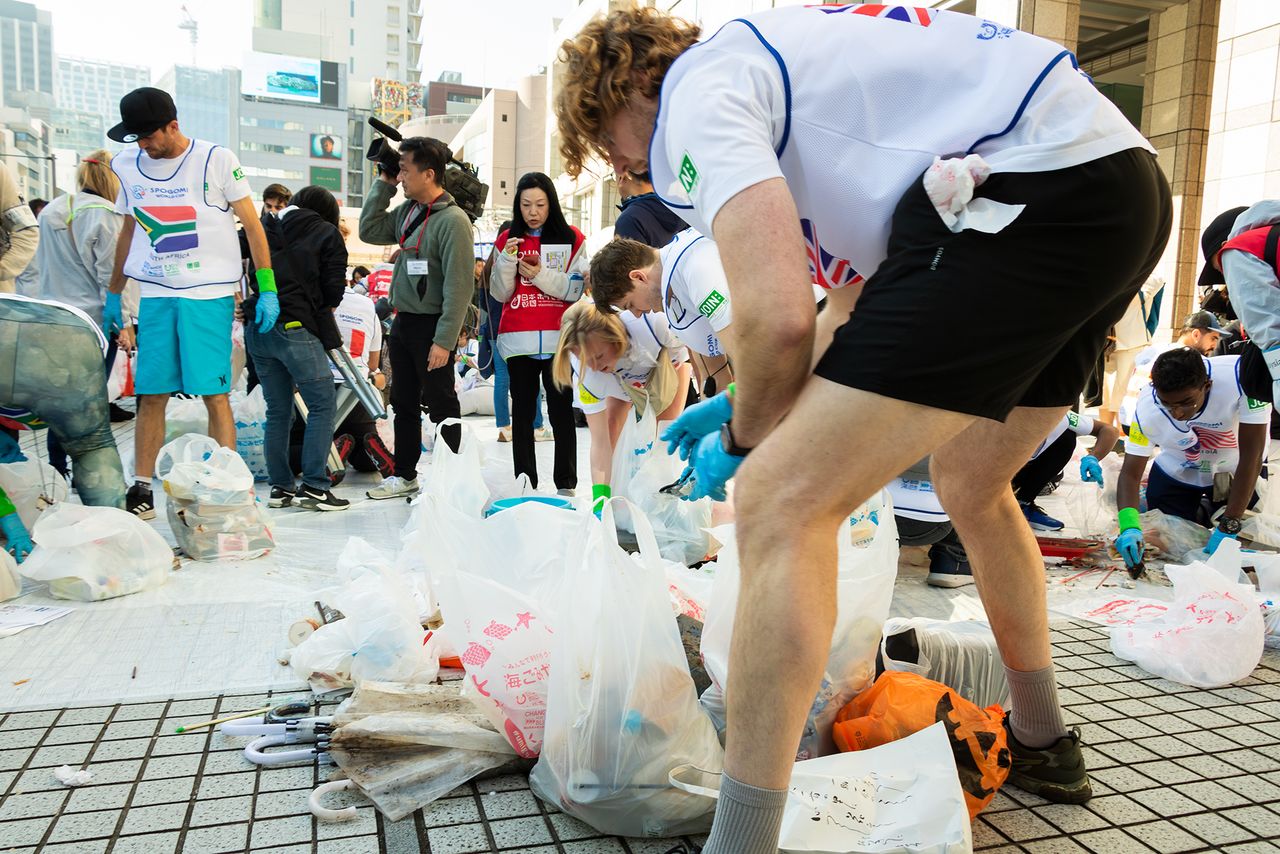
Points were awarded for every 100 grams of trash collected, with teams earning 10 for burnable or unburnable waste, 12 points for glass bottles and metal cans, 25 points for PET bottles, and 150 points for cigarette butts.
Teams took to the streets with determination, but many found Shibuya to have far less garbage than they had initially thought. The three members of the Brazilian team, for instance, admitted that they had miscalculated by aiming for the famed scramble crossing, saying that “it’s the busiest intersection in the world, but it was really clean.” This sentiment was echoed by members of the winning British squad, who said that compared to home, they could barely find any garbage at all. Homing in on high-value PET bottles and cigarette butts proved to be decisive for the top-finishing teams.
Britain and other competing teams said they would work to promote anti-littering practices and competitions of picking up trash. Plans for a second World Cup in two years are already underway, including increasing the number of participating countries.
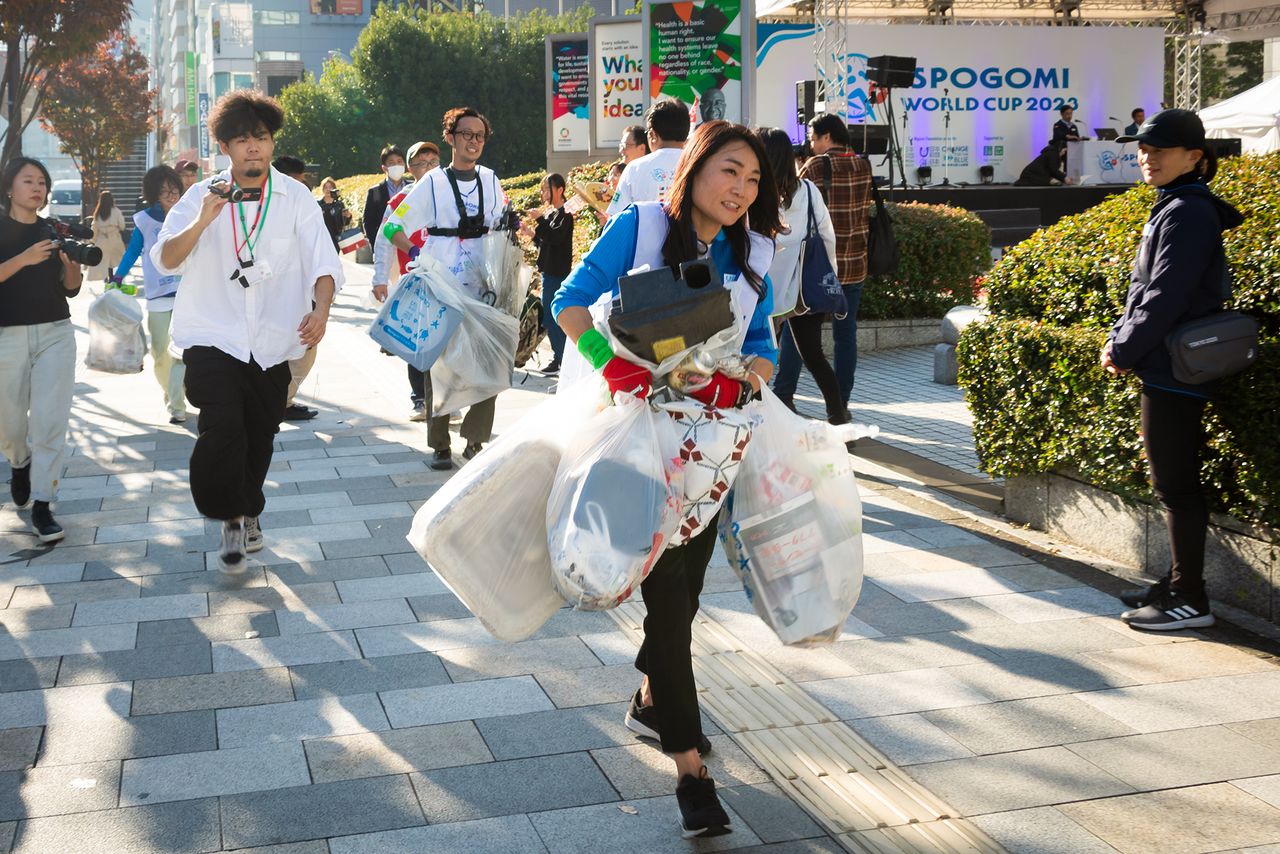
The Japanese team hailed from Niigata and was unfamiliar with the layout of Shibuya, but used their three years of SpoGomi experience to good advantage.
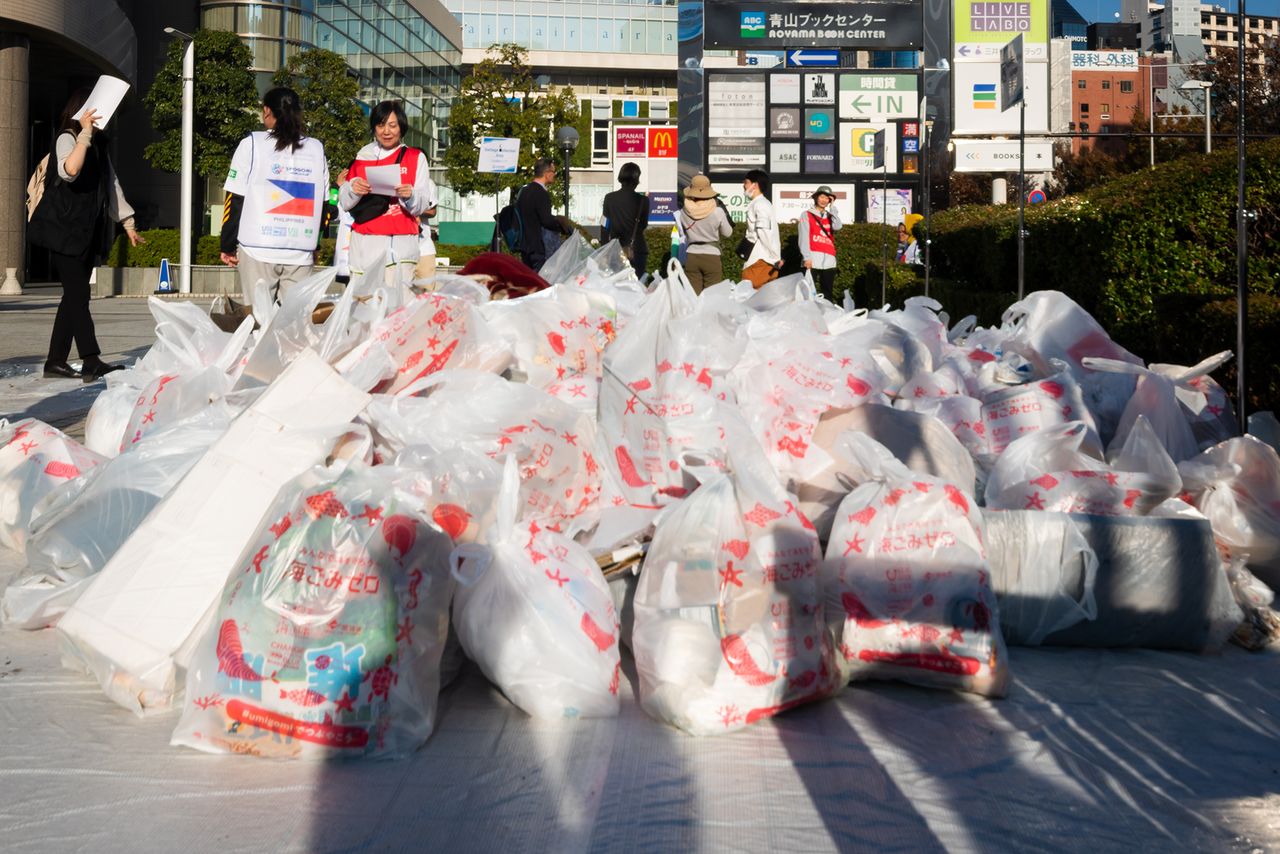
The championship succeeded in removing a total of 548 kilograms of garbage from the streets.
(Originally published in Japanese. Reporting, text, and photos by Nippon.com.)